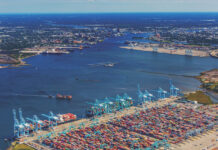 When Barack Obama was a presidential candidate early in 2008, he visited Florida’s Space Coast and promised the workers there that the impending end of the Space Shuttle program would not mean the end of thousands of jobs in the area that depended on NASA’s periodic expeditions into the great beyond.
When Barack Obama was a presidential candidate early in 2008, he visited Florida’s Space Coast and promised the workers there that the impending end of the Space Shuttle program would not mean the end of thousands of jobs in the area that depended on NASA’s periodic expeditions into the great beyond.
Obama promised he would support NASA’s ambitious plans to replace the Shuttle with a new space vehicle. It was an easy promise to make at the time. The economy was still intact and everyone loves bold visions of futuristic space projects. The man Obama was vying to replace, President George W. Bush, had gone even further a few years earlier–telling NASA to aim for Mars.
As president a year later, Obama discovered this was a promise he couldn’t keep. The economic collapse at the end of 2008 forced an assortment of tough spending choices on the country. Keeping the banks solvent and the car industry alive obviously took priority over snazzy new rockets and manned space vehicles. NASA’s budget was decimated, and plans to build a new manned space vehicle were cancelled by President Obama. On July 21, 2011 – ironically the 42nd anniversary of the first time humans set foot on the moon – the Space Shuttle landed at the Kennedy Space Center in Florida for the last time.
So Florida’s Space Coast had to rethink its mission and redeploy its resources to compete in a brave new world in which government funding of space initiatives could not be expected and private corporations were gearing up across the country to fill the void with their own space-exploration ventures.
We’re pleased to report that Florida’s Space Coast appears to have met this challenge and is poised for a rebound.
Private employers on the Space Coast, which is centered on Brevard County and includes Cocoa Beach and Merritt Island, have created more than 4,000 jobs since 2010, adding 1,000 more this year. These jobs are coming to service a diverse galaxy of high-tech initiatives, including aerospace, aviation and engineering, all well-suited to the skill sets of former NASA program workers.
When NASA moved out, companies including jet-maker Embraer, Northrop Grumman, Boeing and Rocket Crafters moved in, bringing a host of small businesses in their wake.
Fortunately, the Space Coast area had experience to draw from in managing this conversion. In 1972, when President Nixon ended the Apollo moon landing program (several additional moon landings were still on the schedule when the program was axed), about 18,000 jobs were lost.
Economic development officials on today’s Space Coast absorbed the key lesson from the Apollo shutdown – planning for the post-Space Shuttle era began well in advance of the last Shuttle flight.
Thankfully, this foresight is beginning to pay off. We applaud the resilience of the Florida Space Coast community and wish them great success as they boldly move into this new era.
















![[VIDEO] Get More for Your Business in Ardmore. Oklahoma](https://businessfacilities.com/wp-content/uploads/2024/02/maxresdefault-324x160.jpg)
